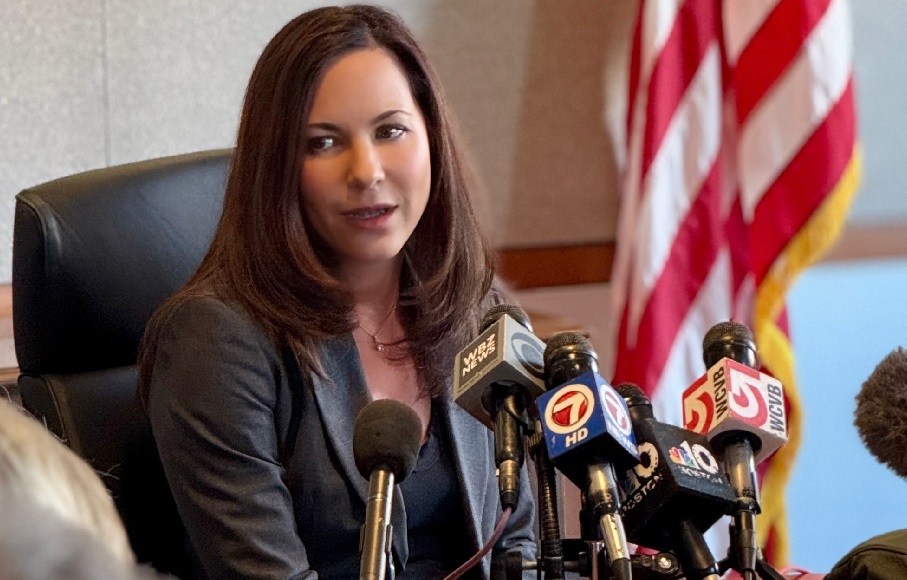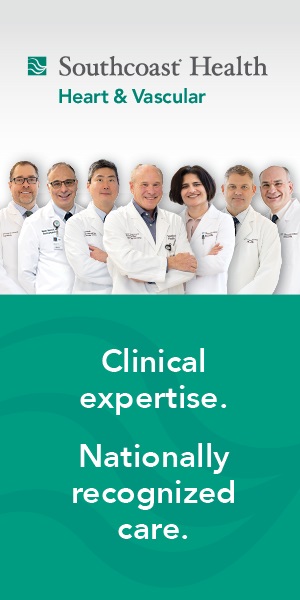latest
U.S. Attorney of Massachusetts Leah Foley: Feds will not turn a blind eye to safe injection sites

The debate on Massachusetts safe injection sites continued on Wednesday with a statement from the U.S. Attorney for Massachusetts Leah Foley.
The sites are facilities where individuals can use pre-obtained illicit drugs under the supervision of trained staff. The goal of these sites is to reduce harm by preventing overdose deaths, connecting people to treatment, and decreasing the spread of diseases like HIV and hepatitis C. In Massachusetts, the concept has been a topic of significant debate and legislative effort as the state grapples with a persistent opioid crisis.
Foley’s statement suggests federal authorities will not turn a blind eye to the sites.
“The April 6th Editorial by the Lowell Sun suggested that the “Feds’ blind eye would give safe inject sites a try.” The Editorial began by asking if the time has arrived to challenge prevailing federal law that criminalizes so-called “safe injection sites”; it ended with the hope that the time would come when the federal government would turn a blind eye to any such sites in Massachusetts.
“I have a one-word answer to the Editorial’s opening question: No.
“As to the hope for a blind eye, I guarantee that such a time will never come during this Administration. “Safe injections sites,” “harm reduction sites,” or however they are branded by advocates, are categorically illegal and do nothing to help people overcome their addictions. To the contrary, they facilitate destructive behavior that ruins lives, consumes families and devastates communities.
“Not too long ago, the open-air drug market operating with impunity along “Methadone Mile” in Boston was shut down because of skyrocketing increases in drug trafficking, sex trafficking and violence, which were the direct result of the ill-conceived experiment allowing drug users to flout the law. Businesses left and have not come back. Creating environments that assist people with pumping poisons into their bodies is neither compassionate nor constructive. We should continue to direct all our resources to the prevention efforts that steer people, especially our youth, away from drug use and treatment protocols that truly save peoples’ lives from their addictions.”
Massachusetts has not yet established any legally sanctioned safe injection sites, however, there has been considerable movement toward them with Massachusetts recording 2,359 opioid-related deaths in 2022, the highest on record, according to the Massachusetts Department of Public Health.
Legislation has been proposed multiple times to authorize safe injection sites in Massachusetts. Bills such as H.2088 and S.1272, titled “An Act relative to preventing overdose deaths and increasing access to treatment,” have sought to establish a 10-year pilot program for at least two supervised consumption sites. These bills would allow municipalities to opt in and provide legal protections for staff and users, addressing current state laws that prohibit dispensing drugs without authorization. While these proposals have garnered support from medical professionals, addiction specialists, and a majority of voters (70% in a 2023 Beacon Research poll), they have not yet passed into law.
Somerville has been at the forefront of local efforts in the state. In 2022, the city released a report outlining plans for a supervised consumption site, potentially in a portable unit located in a city-owned parking lot. The proposed facility would include cubicles for drug use, a clinic, and staff such as nurses and peer support specialists. Although initial plans aimed for an opening in 2021, delays due to the COVID-19 pandemic and legal uncertainties have pushed timelines forward, with advocates still working toward implementation.
Support for safe injection sites in Massachusetts is strong among public health advocates and some state leaders. The Massachusetts Medical Society has endorsed pilot programs since 2017, citing evidence that these sites save lives and facilitate treatment access. Governor Maura Healey has expressed openness to harm reduction strategies, stating in 2023 that she supports communities deciding what’s best for their residents, including the option of safe consumption sites. The DPH also recommended overdose prevention centers in a 2023 report, marking a shift from earlier hesitancy.
However, opposition persists. Former Governor Charlie Baker consistently opposed the sites, arguing they were illegal under federal law and lacked sufficient evidence as a solution. Some law enforcement officials, like Hampden District Attorney Anthony Gulluni, view them as state-sanctioned drug use that could exacerbate the crisis. Federally, the “crack house statute” (21 U.S.C. Section 856) poses a legal barrier, as it prohibits maintaining spaces for illicit drug use.
Globally, nearly 200 supervised consumption sites operate in countries like Canada and Australia, with data showing reduced overdose deaths and public drug use. In the U.S., New York City opened the first legal sites in 2021, reporting over 125 overdose interventions by 2023. An unsanctioned U.S. site, studied from 2014-2019, recorded zero deaths despite 33 overdoses, all reversed with Narcan. In Massachusetts, a 2021 Somerville survey found 94% of drug users would utilize such a site, highlighting community demand.
Critics argue there’s little evidence that safe injection sites address the broader opioid crisis, pointing to rising overdose rates in places like Vancouver, Canada, even with established sites. Proponents counter that these facilities are one tool among many needed to tackle a multifaceted problem.
As of now, Massachusetts remains in a planning and advocacy phase when it comes to safe injection sites. If Foley has any say, that is where it will stay.






